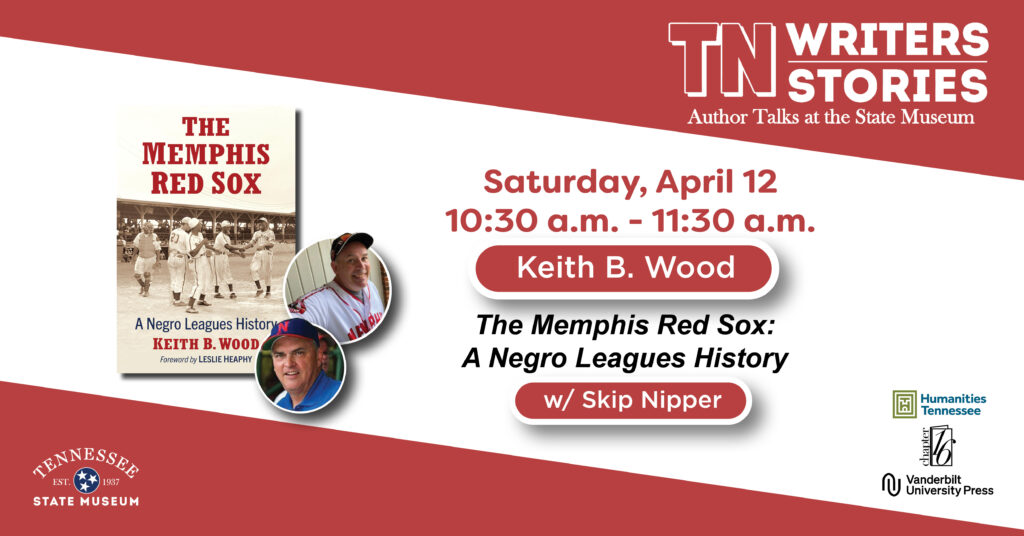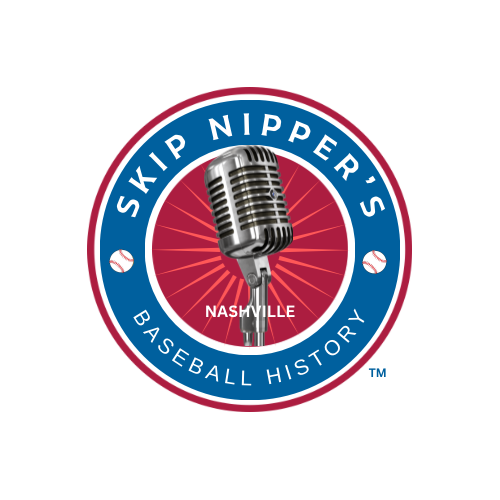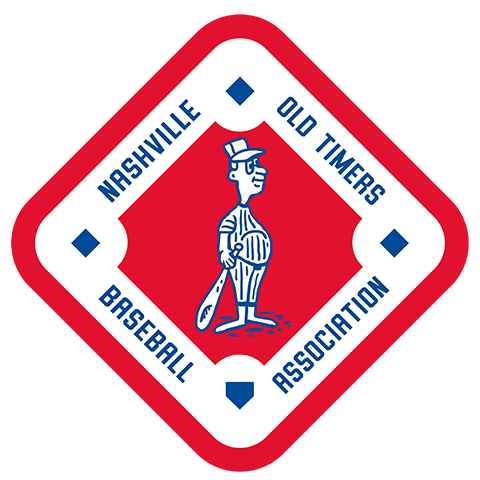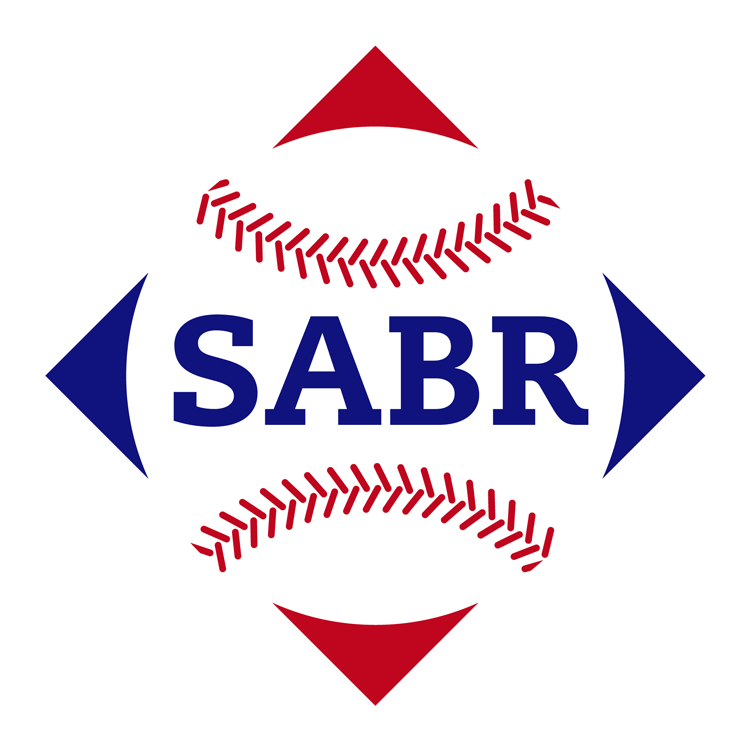
In 2012, Nashville’s R. A. Dickey of the New York Mets finished the year with a 20-6 record, started 33 games and completed five of them, pitched in 232 innings, had 230 strikeouts, and faced 927 batters. In each of these categories, Dickey was tops, and he was named National League Cy Young Award winner as the best pitcher in the league.
He joined another elite group, too. Only ten pitchers in Major League history have held the opposition to only one hit in consecutive games. R. A. was the last to accomplish the deed when he held Tampa Bay and Baltimore to one hit in consecutive starts during his fantastic season.
Here’s the complete rundown of pitchers who have accomplished the feat[1]:
- Hugh Daily, Chicago Browns, Union Association, July 7 & July 10, 1884
- Toad Ramsey, Louisville Colonels, American Association, July 29 & July 31, 1886
- Charlie Buffinton, Philadelphia Phillies, National League, August 6 & August 9, 1887
- Rube Marquard, New York Giants, National League, August 28 & September 1, 1911
- Lon Warneke, Chicago Cubs, National League, April 16 & April 22, 1934
- Mort Cooper, St. Louis Cardinals, National League, May 31 & June 4, 1943
- Whitey Ford, New York Yankees, September 2 & September 7, 1955
- Sam McDowell, Cleveland Indians, American League, April 25 & May 1, 1966
- Dave Stieb, Toronto Blue Jays, American League, September 24 & September 30, 1988
- R. A. Dickey, New York Mets, National League, June 13 & June 18, 2012
Almost a century before Dickey did it, in 1914, another pitcher with a Nashville connection did the same thing as a Vols member in the Southern Association. Pitcher Bernie Boland pitched consecutive game one-hitters, joining the knuckleballing Dickey, now retired, making history.
Born Bernard Anthony Boland in Rochester, New York, on January 21, 1892, to Patrick and Catherine Boland, Bernie honed his pitching skills in his hometown’s sandlots. Playing in a semi-pro league in Rochester in 1911, his reputation as a fire-balling right-hander was well-known by mid-July. The 19-year-old had pitched 34 scoreless innings for the Orange Blossoms[2] when he faced the Lyons Cubs on July 23. The Cubs spoiled Bernie’s scoreless streak, but he struck out 12, gave up eight hits, and banged out two singles of his own[3] as his club won, 10-4.
By September, he won every game he had pitched in.[4]
Boland joined the Akron Giants (Central League, Class-B) for the 1912 season. He was a dependable starter for manager Lee Fohl and won 10 games while losing 14 on the year. He returned to the club in 1913, and his reputation began to shine, culminating in his domination of a baseball immortal as the league began to collapse in July.
Although he began to suffer from a sore arm in early June[5], Bernie had recovered quickly, holding Youngstown to four hits in a 12-0 whitewashing of the Steelmen.[6] On July 2, he pitched a four-hitter against Steubenville. One of the hits was by the second batter Bernie faced, Ernest Calbert, who socked a fly ball over Akron centerfielder Arch Osborne’s head. Calbert circled the bases to score. It was the lone run, as the Giants won 5-1.[7]
But three thousand fans packed the Akron ballpark on July 15 when the American League’s Cleveland Naps came to town for an exhibition game. Boland was selected to start the game, and although he gave up 11 hits, the Naps won 4-3. Cleveland great Joe Jackson faced Boland four times, hitting a triple in the sixth inning. Bernie struck him out twice.
“In the first inning, Joe Jackson walked to the plate. The fans all had a feeling of sympathy for Bernie Boland, the youngster, who was facing the American League’s premier slugger. But Jackson failed to connect, and when he missed the third strike he hurled his bat almost to the Akron bench. Joe was an easy out again in the fourth, got the longest hit of the day in the sixth, a triple to deep center, and fanned again in the eighth.”[8]
When the Central League disbanded a few weeks later, Boland’s contract was purchased by Nashville (Southern Association, Class – AA). He decided to hold out but joined the club when the Vols agreed to his terms.[9]
In his first start for the Vols on August 5 in Birmingham, Bernie lasted into the seventh. He gave up 11 hits and six runs and was removed from the game with an injured hand.[10] Nashville lost the game at Rickwood Field, 9-4. On August 10 at Sulphur Dell against Atlanta, he once again left the game, this time in the fifth inning, as he had torn the cuticle on his index finger from his curveball. Nashville was ahead 3-1 at the time and ended up losing 5-4 in extra innings.[11]
In six games during the year, Bernie won 2 games and lost 3, appearing in 31 innings. Only 5’8” and 168 pounds, the diminutive curve baller was expected to contribute at a greater level in 1914. Due to his speed and fielding ability, manager Bill Schwartz even considered making him an outfielder.[12]
Boland was named starter against Boston in an April 1 exhibition game at Vanderbilt’s Dudley Field (Sulphur Dell was too wet to play on). After retiring lead-off batter Harry Hooper, Clyde Engel singled, and future Hall of Famer Tris Speaker slapped a home run into the trees beyond right field.
Hooper returned the favor to Bernie, snagging Boland’s long drive in right field in the second inning. The game ended in favor of the American League team, 8-2. Boland had pitched five innings, allowing four runs and seven hits.[13]
Once the regular season began, Boland joined Heinie Berger, Floyd Kroh, Forrest More, and Erwin Renfer in the starting rotation. Tom Rogers, who would become the ace of the ball club and toss a perfect game in 1916, was in his first year with Nashville.
On July 28, Boland and pitcher Roy Walker, who was born in Lawrenceburg, Tennessee, pitched against each other in an intense duel in the Pelican’s ballpark. Nashville lost to New Orleans, 3-2 in 10 innings, as Walker struck out 11, and Bernie had ten of his own. But Bernie accomplished a rare feat by striking out four batters in the eighth inning.
“In the eighth Tim Hendrix led off for the Pelicans and Boland fanned him. Charlie Starr (formerly with the Bisons) likewise swung and missed three successive times but was not out until Catcher Smith had thrown to first, as Smith dropped the ball after the third strike. Then Walter Barbare, the fleet Pelican shortstop, came to bat and he struck out. But Walter, for some reason, chose to swing on a wide on his third attempt and both he and Catcher Smith missed it. Result: Walter got to first in safety. Shortly afterward, too, he stole second and then third. Otto Burns was at bat and a hit would have won the game. Otto tried hard to deliver, but failed, and after three tries was out. Hence Boland’s four strikeouts in one inning[14].”
At the time Boland achieved his rarity, only four major league pitchers had done it:
- Ed Crane, New York Gothams, National League, October 4, 1888
- Hooks Wiltse, New York Giants, National League, May 15, 1906
- Orval Overall, Chicago Cubs, National League, October 14, 1908
- Walter Johnson, Washington Senators, American League, April 15, 1911[15]
On August 8 at Sulphur Dell against Memphis, Boland gave up a walk, and only one hit as his team beat the Chicks 3-0. Bernie kept the opposing hitters in check through eight innings, but opposing catcher George “Admiral” Schlei slapped a hit between first and second for a clean hit, spoiling a no-hit bid. It was the only hit allowed by Boland in the game, played in one hour and 30 minutes.
He started his next game in Atlanta on August 12, and gave up four runs to the Crackers. But after only 1 ½ innings had been played, the game was canceled due to rain. Since the game was a washout and had not gone the minimum of 4 ½ innings to be considered a complete game, none of the hits or runs counted.[16]
His second one-hitter came on August 13 in the second game of a doubleheader in Atlanta. After Nashville scored ten runs in the first inning of game one, 11-1, Boland held the Crackers to a single hit in 11 innings, as Nashville pushes a run across in the top of the 11th to win, 1-0. Nashville sportswriter Jack Nye explained.
“In his last two games, Boland has allowed but two hits and no runs. In his one-hit affair against Memphis he gave up but one base on balls, but yesterday his control was not quite so good, five Crackers working him for passes. In the pinches, however, he had enough stuff to pull him out, fanning eight opposing batsmen.
“As far as can be learned, these two consecutive one-hit games set a new Southern league record. Bernie has now pitched twenty-three innings without a run being score on him. Though four runs were made in the first inning of Wednesday’s game at Atlanta, this does not go in the records, as the game was called in the second inning on account of rain.”[17]
The 22-year-old Boland finished the season 17-14 as Nashville finished in fifth place with a 77-72 record. The Detroit Tigers had seen something they like in Bernie, and Nashville sold his services to the American League club on August 28 for $5,000.00.[18]
He made his major league debut on April 14, 1915, relieving starter Harry Coveleski against Cleveland at Detroit’s Navin Field. He had no decision but allowed no hits in two innings as the Tigers fell, 5-1.
He worked his way into the starting lineup and finished the year 13-7 with a 3.11 ERA. The club won 100 games but lost the American League pennant to the Boston Red Sox, who had won 101.
In Detroit, his teammates included Ty Cobb, Sam Crawford, and Bobby Veach. Cobb set the season stolen base record of 96 in 1915 until Maury Wills of the Los Angeles Dodgers stole 104 in 1962.
Boland stayed with the Tigers for six more years and had his best season in 1917 when he was 16-11 and an ERA of 2.68. The next season, as World War I was raging in Europe, major league baseball played a short season, and when it ended, he served in the Army until the war was over.
In seven years, he was 67-49 for Detroit and finished his career as a member of the St. Louis Browns in 1921 when he was 1-4 in seven appearances. His final game was on June 17 against Washington at Griffith Stadium, when he started for one last time. After giving up nine hits and five runs in five innings, the Browns gave him his unconditional release.
Bernie married Grace Belle Russelo on May 22, 1917, in Detroit, and together they had four children: Patrick, Mary Anne, John, and Rita. After baseball, he entered the construction business, opening Tiger Construction Company. He later became a construction foreman in Detroit’s Department of Public Works before retiring in 1957.[19] On September 12, 1973, he died in Detroit and was buried in St. Hedwig Cemetery in Dearborn Heights, Michigan.
As a Nashville Vols member, his claim on the baseball record books includes a couple of near-impossible feats: striking out four in an inning and tossing two consecutive one-hitters. As rare as those feats are, his right to assert his mark on baseball will remain in the annals of Nashville baseball history.
Sources
Baseball-reference.com
Newspapers.com
Paper of Record
Retrosheet.org
Sabr.org
Southernassociationbaseball.com
Wright, Marshall D. (2002). The Southern Association in Baseball, 1885-1961. Jefferson, North Carolina: McFarland & Co.
Notes
[1] “1-Hit Games Records,” baseball-almanac.com, http://www.baseball-almanac.com/recbooks/1-hit_games_records.shtml, accessed October 8, 2020.
[2] “Among The Semi-Professionals.,” Democrat and Chronicle (Rochester, New York), July 23, 1911, 25.
[3] “Orange Blossoms On Top,” Democrat and Chronicle, July 24, 1911, 15.
[4] “Game for the Orange Blossoms,” Democrat and Chronicle, September 20, 1911, 19.
[5] “Saturday’s Game,” Akron Beacon Journal, June 9, 1913, 9.
[6] “Even “Red” Ainsworth Was Unable to Check Slugging of the Giants,” Akron Beacon Journal, June 13, 1913, 16.
[7] “Slugging Giants Continue To Climb,” Akron Beacon Journal, July 3, 1913, 9.
[8] “When He Fanned.,” Akron Beacon Journal, July 16, 1913, 9.
[9] Jack Nye. “Weak Spots To Be Bolstered Up Soon,” Nashville Tennessean, July 31, 1913, 10.
[10] Nye. “Bill Prough Beats Vols And Makes It Nine Straight Wins,” Nashville Tennessean, August 6, 1913, 10.
[11] Nye. “Eleven-Inning Game Goes To Crackers,” Nashville Tennessean, August 11, 1913, 8.
[12] Nye. “New Players In Line-Up Tomorrow,” Nashville Tennessean, March 21, 1914, 10.
[13] Nye. “Speakers Hitting Helps Beat The Vols,” Nashville Tennessean, April 2, 1914, 10.
[14] “Struck Out Four In Single Inning,” Buffalo Commercial, July 30, 1014, 8.
[15] “Four Strikeouts in One Inning,” baseball-almanac.com, http://www.baseball-almanac.com/feats/feats19.shtml, accessed October 8, 2020.
[16] Dick Jemison. “Rain Stopped Opening Game With Crackers Leading 4-3; Two Double-Headers Now,” Atlanta Constitution, August 13, 1914, 6.
[17] Nye. “Back In First Division; Pennant Hopes Revived,” Nashville Tennessean, August 14, 1914, 5.
[18] “Tigers Buy Boland, Nashville Pitcher; Reports Sept. 15,” Detroit Free Press, August 29, 1914, 10.
[19] Lee, Bill. (2003) The Baseball Necrology: The Post-Baseball Lives and Deaths of More Than 7,600 Major League Players and Others. Jefferson, NC: McFarland & Co., Inc.
© 2020 by Skip Nipper. All Rights Reserved.




